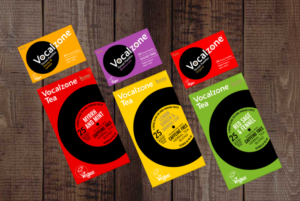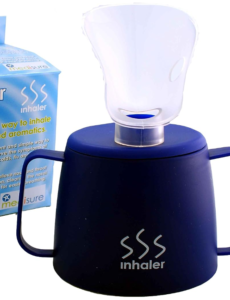When you’re working on becoming a great keynote speaker, one thing that isn’t often talked about is how important it is to look after your voice. It makes sense, because the first thing we tend to worry about when embarking on a creative career is how to turn the thing we love into our livelihood. So, if you’re going to be a keynote speaker, you need to be comfortable with:
- Being self-employed
- Finding, and closing, business – and then delivering a great experience
- ‘Spiky’ income with no guarantees
All scary things, no? For sure.
But not as scary as something that I hadn’t thought too much about until the pandemic hit and I caught the ‘vid……
💀 LOSING YOUR VOICE 💀
So, if the thought of losing that most precious tool is terrifying to you – here’s my top tips to protect your speaking career by looking after the one thing that is uniquely yours.
5 Ways to look after your voice
There’s a lot written about ‘finding your voice’ – whether as a speaker or simply just as a human who is sick of being disregarded or talked over in meetings (waves at half the women I’ve ever worked with) and I feel pretty settled in that regard. Like Mike D says, I like to think I “came out rapping when I was born”.
Whilst that is the case today, it’s certainly been ‘a journey’ (cue X-Factor emotional build-up music…).
As a child I was told I “never did shut up” or to “be quiet”. I was called “Mouth of the South” by one boy at school and, at a friend’s wedding, a guest at the table gestured towards me while I was in full flow and said “Imagine being married to that”. I was devastated by the second comment but later, when it was revealed the man in question was a serial philanderer and liar, and my fabulous friend left him (shortly followed by the hair that he so prized) I understood I really didn’t need his approval.
In later years, I heard hints of what was to come. One friend said I had “a voice you can just listen to”, another said “you’ve really got something”. Others jumped at the chance to support my stand up and asked me to recite poetry that I’d composed at their weddings. From pubs to pulpits to professional speaking. I’d found my voice, now how do I go about looking after it?
1. Exercise those vocal chords
Anyone who has attended a music lesson at school should be used to doing vocal scales. Whether is was listening to different genres or composing our own showtunes, the music teacher at my state comprehensive really liked to mix things up. Not only did we do “do-re-mi”, we did “ah-ooh-ee”. From memory, each “ah-ooh-ee” round was comprised of making the sounds five times, going up a scale and then down again – the below example is the closest I can find and make me wonder if the version I remember is one of us mucking about….
2. Find a personal trainer
These exercises were brought back to life when I went to see vocal coach – Julia Myles. She reminded me that vocal exercises aren’t just for singing, they’re great for professional speakers too! If you’ve ever felt a bit conspicuous singing in a choir, doing a 1:1 session is an intense experience but so, so worth it. And, if it helps you feel like it’s less of a ‘luxury’, treat it like booking a session with a personal trainer at a gym 🙂
We talked (and workshopped) projection, pace and breathing. We said the days of the week with our tongues poking out of our mouths, then again ‘normally’ and I was amazed at the difference in my diction. She taught me warm-up techniques and exercises to relax facial tension (it is incredible how much stress we carry in our jaw). I realised that, when you rely on your voice for your income, you have to keep it in shape!
3. Source the right medicine
I often wonder how singers manage it. Specifically those who subscribe to the ‘sex & drugs & rock & roll’ school of performance. How can you hit the high notes after a kilo of Class-A’s and pint of Jim Beam? I, for one, will never know but what I do know is what works for me.
Pastilles
I’ve used Vocalzone if my throat’s feeling a little irritable. Their original pastilles smell a bit like weed c.1990. Apparently they’ve been making solutions for singers for more than 100 years and if you buy five packs you get a nice little tin. They won’t coat your teeth like Strepsils. But they will make other speakers notice you on public transport and give you a little nod of recognition (either that or they did naughty things when they were 16 too ;)).

Steaming
I read an interview with Jason Donovan where he said he swears buy steaming his vocal chords (not a euphemism). So I bought what looks like a Tommy Tippee cup for adults. As cost-effective and portable as it was, I think using the old-school ‘face over a bowl of hot water with a towel over your head’ would be more effective but it did relieve my sinuses.

An apple a day
On one speakers forum, someone who was recording an audiobook recommended gradually eating a green apple in tiny bites as a way to keep your vocal chords refreshed. A natural approach and one of your ‘five a day’ – nice!
4. Behave before a gig!
Now this goes contrary to the Oasis anthem of Cigarettes and Alcohol but if you’re a speaker who is being paid to deliver a keynote / awards ceremony / motivational talk you seriously don’t want to be drinking or smoking before a gig. Even if you really want to. Even if, in your head, you are channelling your inner ‘Kate Moss in a Primal Scream video’. One wrecks your voice. The other makes you fall over and forget. There are two exemptions to this:
- You are a rock star
- You are Fred Rickwood in Father Ted and can sober up on a sixpence 👇👇
5. Try my secret weapon!
Prior to hosting an awards show I had a sudden sensation in my throat that all was not well. In a moment of panic, I bought a selection of drinks from Boots at Paddington Station. Included in my haul was water, green pressed juices and a carton of coconut water. Having not tried coconut water before, I gave it first dibs in my taste test. I took a sip…..and angels sang!

(Image credit: Xiaoyu Li on Unsplash)
Apparently coconut water is full of electrolytes and other types of goodness that reaches the parts other liquids can’t reach (in my case at least). It has since become a staple in my fridge and handily makes every other member of my family gag in disgust. Apparently, it’s great for hangovers too 😉 If you’ve not yet tried it, I highly recommend you get on board!
Got tips for looking after your voice that you’d like to share? Let me know, I’d love to hear them 🙂
—
Looking for a great keynote speaker who knows how to use their voice (and how to protect it too!)? Get in touch via the contact form or drop a line to the Riva Media team via [email protected]




